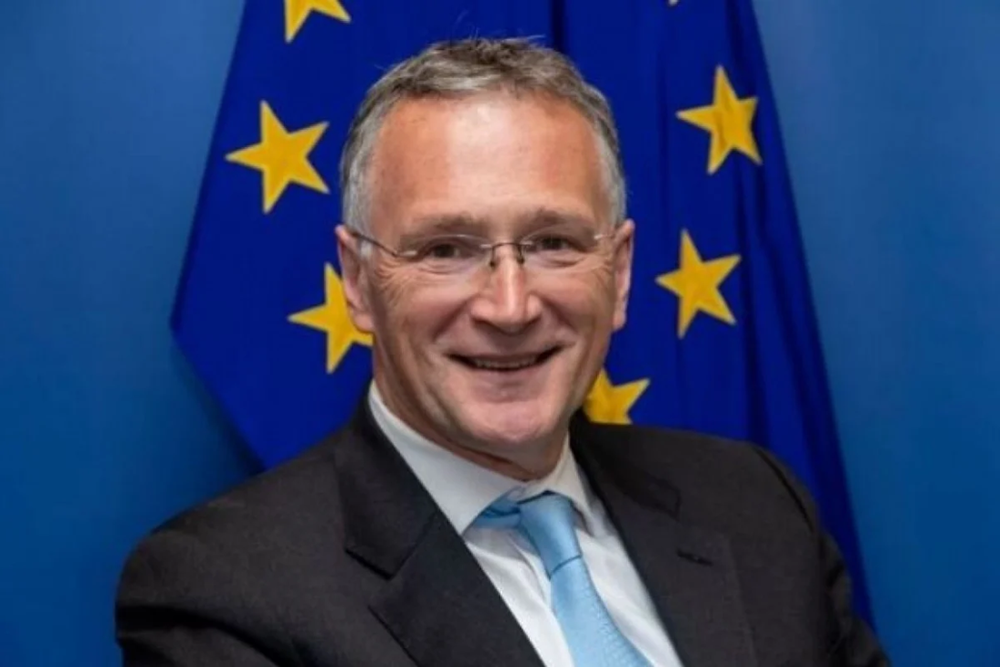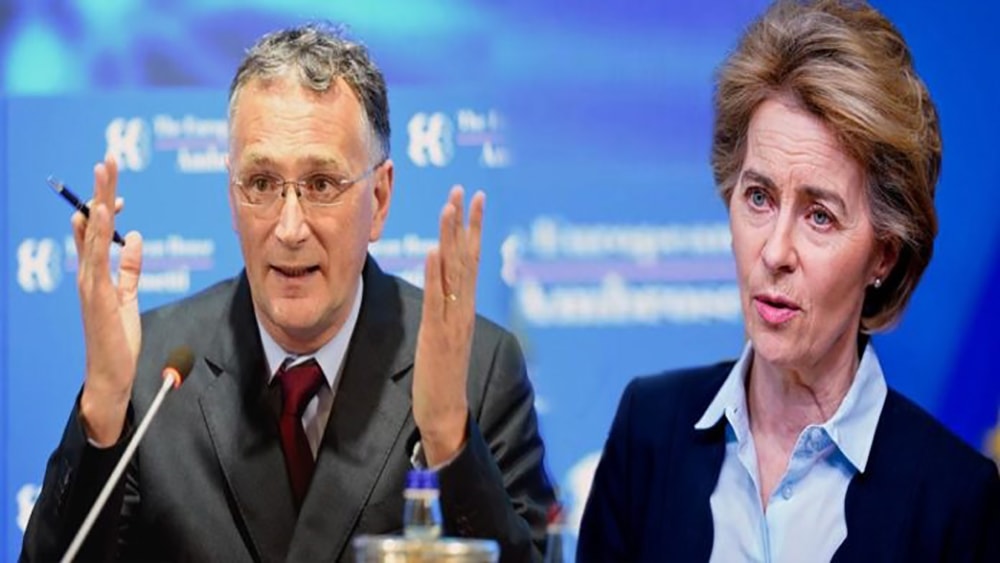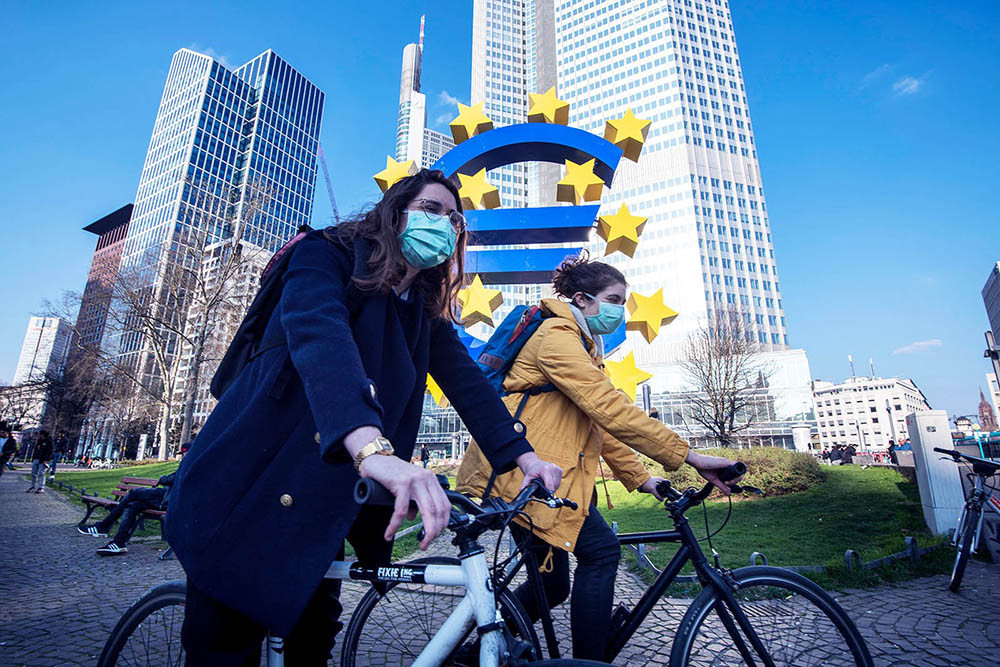Former ERC President Mauri Ferrari: Talented scientist not 'suited' to Europe
(Baonghean) - After only 3 short months of accepting the position of President of the European Science Council (ERC), Italian-American scientist Mauri Ferrari had to say goodbye early.
The reason for his resignation was his disappointment with the European Union's (EU) poor handling of the situation and his dissatisfaction with not being able to convince EU officials to launch a special research program to combat the Covid-19 pandemic. Considered one of the world's leading scientists, Mr. Mauri Ferrari's decision will probably make things more difficult for Europe, as the Covid-19 pandemic shows no signs of abating.
A short-lived relationship
More than 3 months ago, the European Commission (EC) decided to choose Professor, Dr. Mauri Ferrari to be the President of the European Science Council thanks to his outstanding achievements in his career. Many expectations were placed on the Italian-American scientist, one of the world's leading experts on nanotechnology applied to treating cancer and diabetes. However, after only 3 months, Mr. Mauri Ferrari made a hasty decision: to resign while Europe was struggling with the Covid-19 crisis. Not turning his back on the tragedy, Mr. Mauri shared that he tried very hard to convince EU officials to set up and urgently implement a special research program to quickly stop the development of the Covid-19 pandemic, but failed.
 |
| Mauri Ferrari - Former President of the European Science Council. Photo: SCMP |
In an angry statement, Mr. Mauri Ferrari also said, “The proposal was rejected by the governing body without even considering its form, let alone its content,” and that, “I was well aware of the problems that exist in the scientific and political governance of the European Union.” Therefore, instead of planning to serve Europe for about 4 terms, the Covid-19 crisis has completely changed the scientist Mauri Ferrari’s perspective.
In response to Mr. Mauri Ferrari's decision, members of the European Science Council quickly reacted. Contrary to the former President's statement, scientists said that in the 3 months he held the position, Mr. Ferrari did not perform well, and did not actively evaluate and support the bloc's scientists. In addition, members also said that Mr. Ferrari had implemented a number of private initiatives without consulting the group. Despite the contract, Mr. Ferrari, as President of the European Science Council, was allowed to use 20% of his time to pursue his own activities and ideas. Specifically, Mr. Ferrari was accused of participating in too many activities with outside businesses, academic institutions, commercial companies, etc., causing him to not spend enough time and effort on the Science Council as committed. Some even said that Mr. Ferrari was bringing an American entrepreneurial spirit to the European Science Council.
Furthermore, the European Science Council, which includes scientific stars such as Ben Feringa - a Nobel Prize winner or Janet Thornton - Director of the European Molecular Biology Laboratory, also said that they soon realized that Mr. Ferrari would have difficulty cooperating with the members of the council. Some other opinions commented that, as an American scientist of Italian origin, when returning to Europe, Mr. Ferrari may want to do something impressive. However, the European Science Council itself has been operating according to unified directions from the top down for many years, it is difficult to immediately "break the barrier" to implement new ideas. That could also be the reason for escalating the conflict between the parties.
 |
| Mr. Mauri Ferrari and President of the European Commission Ursula von der Leyen. Photo: AFP, Getty |
Covid-19 climax and farewell
Perhaps, the disagreements and conflicts that had been simmering within the European Science Council erupted when Mr. Ferrari proposed an idea to deal with the Covid-19 pandemic. Professor James Wilsdon of the University of Sheffield commented that Mr. Ferrari's way of thinking was large-scale and grandiose. And that, it seemed that Mr. Ferrari misunderstood the structure and research funding activities of the European Union (EU) as well as the role of the European Science Council (ERC). Some other opinions said that Mr. Ferrari wanted to turn the ERC into an action agency like the US National Institutes of Health (NIH) to act in the fight against Covid-19. However, according to experts, Mr. Ferrari did not understand that not only Europe but the whole world is facing a serious health crisis, leading to an economic and development crisis. Therefore, the job of the European Science Council is to be creative and independent, not to call for budget for a grandiose and macro plan.
But on the contrary, according to the supporters, with the mindset of a modern scientist, Mr. Ferrari may also have many reasons to be determined to carry out his large-scale projects. Because looking back, Mr. Ferrari has built a scientific career that many people admire. When he was in the US, he was the only Italian-born scientist chosen by the US government to join the team to find solutions to fight cancer.
 |
| Europe is struggling with the Covid-19 pandemic. Photo: Brink News |
Born in 1959 in Italy, Mr. Ferrari graduated with a degree in Mathematics in his home country in 1985. He then won a scholarship and studied at the University of California at Berkeley, USA, earning a Master's degree there in 1987. His academic and research career did not end when he received a PhD in Mechanical Engineering in 1989 and then returned to Italy to fulfill his role as a researcher. But only 2 years later, the University of California invited him to work as an assistant (1990 - 1995) and then as an Associate Professor (1969 - 1999). During the period 2000 - 2006, Mr. Ferrari, who had received the title of Professor, transferred to Ohio State University. During this same period, he was a Special Advisor at the National Cancer Institute in Bethesda (2003 - 2005). Here, he directed the launch of a program to develop nanotechnology for cancer treatment in the US. During the years 2006-2009, he participated in many programs and held many different positions at the University of Texas. During his scientific career, he published 230 research papers, 7 books, and more than 30 patents granted by the US and internationally. Before taking on the role of President of the European Science Council, from 2010, Mr. Ferrari held the position of President of the Methodist Research Institute of Houston, Texas.
Considered to have abundant scientific research energy, full of ideas and ambition, but perhaps Mr. Ferrari's personal mark has not been able to be effective in his home country of Europe. Brussels, in its farewell, expressed its gratitude to Mr. Ferrari personally and wished the former President of the Scientific Council new developments for the future. Currently, the European Commission is also quickly looking for a replacement, expected to be one of the three current Vice Presidents. For his part, according to the latest announcement, Mr. Ferrari has returned to the US to support the government in fighting the Covid-19 pandemic. It is impossible to confirm who is right - who is wrong, but perhaps, Mr. Ferrari's 3 months "back home" and his short-term relationship with the EU have helped the scientist realize where is the most suitable place for him to contribute and stay long-term!./.

